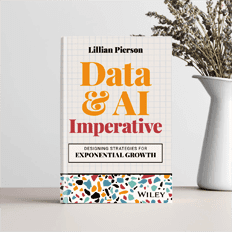Big data is transforming the way organizations understand their customers. It helps companies target specific customer segments, understand which demographic groups prefer which products, and what to market to whom (and when) to increase sales.

Big data enables companies to derive insights about customer behaviour in order to make the better business decisions that result in improved customer retention. Today we’ll be taking a look at the 360-degree customer analytics use case to show how big data automation tools can deliver business value from real-time data by increasing customer retention.
Four Aspects of Big Data Automation
I have outlined below a simple list of big data automation aspects. Each aspect contributes to more efficient handling of real-time (big) data, thereby increasing business value.
Automated data management
 Automated data management allows for automating a wide swath of data maintenance requirements, including:
Automated data management allows for automating a wide swath of data maintenance requirements, including:
- Data cataloging
- Data security
- Data governance
- Data integration – either done in batch or in real-time.
Big data automation tools deliver increasing business value by decreasing data maintenance time requirements and by increasing data unification. They offer fast data protection which lowers the risk of a data breach, faster and easier data retrieval (thus shortening time to value), and they provide a unified view of data, which leads to improved decision-making. If you’re looking for a solution for automated data management, check out SAP Data Hub and SAP Enterprise Architecture Designer.
Automated data preparation
Crowdflower recently reported that in 2017, data scientists indicated they spent 66% of their time in data preparation. Either fully or semi-automating these processes will allow data scientists to spend their time doing higher-value work, subsequently decreasing your costs in data science man-hours.
Automating data preparation typically involves automated:
- Data cleanup via preliminary data analysis
- Data discovery
- Feature removal
- Feature engineering
- Variable transformation
In addition to freeing up your data scientists, automated data preparation allows for a shorter time-to-value and improved predictive performance. Trifacta and Alteryx both offer solutions for automated data preparation.
Data Pipelines
Data pipelines for big data automation are automated processes for extracting, reformatting, aggregating, migrating, and preparing big data for analytics. Usually processes completed by humans, automation of these processes results in fewer human errors, faster results, faster insights, and fewer man hours. There are many solutions available for this – AWS Data Pipelines and Kafka offer out-of-the-box solutions, or you can develop your own using Python, Java, etc.
A note about the above three big data automation tools – there are solutions that offer an all-in-one service. SAP HANA Data Management suite offers automation support for data management, data preparation, and data pipelines.
Automated model management
To track changes and tweaks while a model is in-production, using an automated model management tool will be useful for saving the state of your environment, configuration, stats, files, and code. And you have the option of doing this in a cloud environment or on-premise. For automated model management solutions, check out Datmo.
Use Case: Big Data Automation Tools with 360-Degree Customer Analytics
360-degree customer analytics allows a faster and more comprehensive view of your customer’s journey. These analytics can be built off of both static and streaming data sources. Their whole purpose is to enhance decision support across your organization leading to:
- Increased customer retention
- more up-sells and cross-sells
- Faster more seamless collaboration across your business units
- Increased advertising revenues
Just a quick note about technology here – for this use case you will need analytics dashboards for use internally (ie; that use internal data sets) and the ability to run manual or automated batch updates. One tool to help you accomplish this is Microsoft Azure Machine Learning.
I hope you enjoyed learning all about how big data automation tools can support decision-making and create value in your business. Have you experienced enhanced-decision making due to big data automation? I’d love to hear how that was!! Leave your feedback in the comments below.





